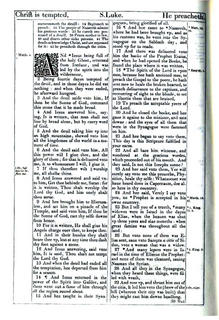Poverty or Glory?

"But the brother of humble circumstances is to glory in his high position;"
Pessimism should not exist within the family of God, we should be so affected by our future hope that it does away with any present pessimism. As a child of the King, even in humble earthly circumstances, the believer is an heir to future kingdom of glory. The believer needs not be disheartened by his present poverty, or regard it as evil. The child of God is the possessor of spiritual riches that more than outweigh his material poverty in this present life. This is the key! We must change our perspective from “the here and now” to an eschatological perspective. What James is teaching is that we must look at life from an eternal perspective to see who really has the exalted position and who really is rich. When we see things from this perspective we can glory in our highness. Literally we can boast in our position. But what does that mean? Well let’s look at some biblical examples: Jeremiah 9:23-24; 1 Corinthians 1:26-31; 2 Corinthians 11:30;
 Galatians 6:14. In all of these cases boasting is presented in a favorable light. There are two reasons why this type of boasting, or glorying, is favorable: 1) it does not boast in the might of man, in fact it views man as helpless; 2) it has such a high view of God that only through the work of Christ can we boast.
Galatians 6:14. In all of these cases boasting is presented in a favorable light. There are two reasons why this type of boasting, or glorying, is favorable: 1) it does not boast in the might of man, in fact it views man as helpless; 2) it has such a high view of God that only through the work of Christ can we boast.Let me ask you this question: Do the people around you know more about your earthly accomplishments than your eternal place in God’s family? Have you told them all about you accomplishments, but never told them of the greatest thing in your life? What is it that you talk about more, yourself, or the one who saved you? Believers must look beyond the world’s evaluation to understand who they are, and see themselves from God’s perspective. God has chosen those who are poor in the eyes of the world to be rich in Christ with fruit, and an eternal inheritance. It is in Christ Jesus that the believer has received every spiritual blessing, including poverty. We serve a God who is powerful enough to use even something like poverty, which from our perspective seems so horrible, as a spiritual blessing. Poverty, just like all other trials, should lead us to humble ourselves before God placing our total dependence on Him for survival in this world and justification in the world to come. When we are able to do this the joy inexpressible that Peter writes about will poor out of our veins, and we will be incapable of boasting in anything other than that Cross which is so despicable to the world.
Ephesians 1:3-11


















